
Vincent Sisounong and Blessing Gainey were charged with attempted murder.
A Kirkland, Wash. family nearly lost their son in a brutal home invasion that Comcast’s home security system failed to deter and now the family is taking the cable company to court.
Leena Rawat and her family depended on Comcast’s home security system to keep their home intruder-proof, and that is precisely what the company and its contractor, Pioneer Cable, promised.
But the night two teenage neighbors went looking for blood, they had no trouble bypassing Comcast’s unarmed basement sensor and entering the family’s home.
Within minutes, the two men grabbed 18-year old Deep and began torturing him while his family slept.
“They were going to play a game with him tonight – and the game would be that he would be fighting for his life,” Rawat told KING-TV in Seattle. “He was full of blood from head to toe, with gashes. He was in the worst situation possible that a mother wants to see her child in.”
The intruders’ impromptu mission: to chop off one of Deep’s arms and legs with various cutting tools while robbing the family home.
Police say Vincent Sisounong and Blessing Gainey began the attack in Deep’s bedroom, then dragged him to the basement, where Sisounong instructed Gainey to hack at Rawat’s leg down to the bone, and then stabbed Rawat himself. Court documents said Sisounong told detectives that he wanted the victim to “fight for his life,” and when asked if the experience was enjoyable, he said, “yeah.”
Rawat eventually managed to break free, prompting Gainey to leave the scene. But Sisounong chased after Rawat as he ran to the bathroom, further slashing him with a knife. Rawat mustered enough strength to punch the intruder in the face and escape, but not before the men stole keys, electronics, and money before walking out the door.
[flv]http://www.phillipdampier.com/video/KIRO Seattle Police Suspects tried to kill for pleasure and greed 11-4-13.flv[/flv]
KIRO-TV in Seattle reported on the home invasion back in early November 2013 and learned horrified neighbors were arming themselves to protect against another random attack. (2:27)
During the incident, the only alert that something might be wrong came from the family’s car alarm that accidentally went off during a struggle for the keys. At no time did Comcast’s alarm system activate or signal police an intrusion was underway. Authorities were summoned only after Deep arrived, bleeding and badly injured, on a neighbor’s doorstep.
Vincent Sisounong, 21, and Blessing Gainey, 19, were located by authorities after matching fingerprints were found inside the Rawat home and both were charged with first-degree attempted murder and first-degree burglary.
When interviewed by police, Sisounong said he “really wanted” to kill the teenager, court documents said, noting that neither man knew the Rawat family.
“I just say God was there that night,” said an incensed Leena. “God, but not Comcast security. It’s been very tough. It was not a one night thing. It’s changed our life.”
That night and every night, the one thing Comcast’s security system manages to protect more than anything else is the cable company itself.
The traumatized family quickly learned Comcast was disavowing any and all responsibility for the failure of their alarm system, and Comcast’s contracts include clauses that require customers to waive all liability, even if Comcast is later found negligent. In fact, customers who sign Comcast’s contract must also side with the cable company and against their own insurance company during any claims process.
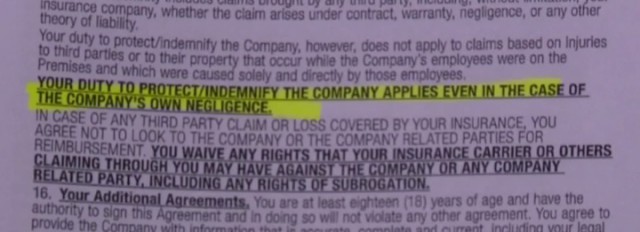
Comcast’s security contract lets the company walk away from responsibility for almost everything.
The first duty of every Comcast home security customer is to protect Comcast, as made clear in particularly bold, all-capital letter print:
YOUR DUTY TO PROTECT/INDEMNIFY THE COMPANY APPLIES EVEN IN THE CASE OF THE COMPANY’S OWN NEGLIGENCE.
“If their argument is to be accepted, they could put in empty black boxes throughout the house and say, ‘That’s your system.’ And then something goes wrong, and they say, ‘We never promised you it would work,'” said Ken Friedman, attorney.
Comcast’s response:
“We want to take this opportunity to extend our sympathies to the Rawat family. However, after a review of our records, we are confident that our home security system functioned properly.”
[flv]http://www.phillipdampier.com/video/KING Seattle Comcast Sued Over Home Security System Failures 10-1-14.flv[/flv]
KING-TV in Seattle talked with Leena Rawat about how Comcast let her and her family down on the worst night of their lives. (2:29)
 Earthlink customers in New York, Los Angeles and Austin are receiving letters from Time Warner Cable advising them they qualify for the same speeds Time Warner Cable broadband customers are receiving as part of the TWC Maxx upgrade program.
Earthlink customers in New York, Los Angeles and Austin are receiving letters from Time Warner Cable advising them they qualify for the same speeds Time Warner Cable broadband customers are receiving as part of the TWC Maxx upgrade program.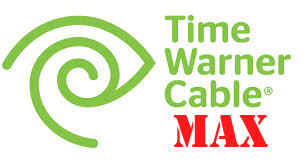 Stop the Cap! reader Iris was immediately suspicious about the tone of Time Warner’s letter, which has the potential of confusing customers that own their own cable modems. The letter suggests customer-owned equipment might not be compatible with the speed upgrades. Customers are given a phone number to verify their eligibility, and some who have contacted Time Warner Cable report back they have been given a brief sales pitch to ditch their own modem in favor of one from Time Warner Cable, which costs $5.99 a month forever.
Stop the Cap! reader Iris was immediately suspicious about the tone of Time Warner’s letter, which has the potential of confusing customers that own their own cable modems. The letter suggests customer-owned equipment might not be compatible with the speed upgrades. Customers are given a phone number to verify their eligibility, and some who have contacted Time Warner Cable report back they have been given a brief sales pitch to ditch their own modem in favor of one from Time Warner Cable, which costs $5.99 a month forever.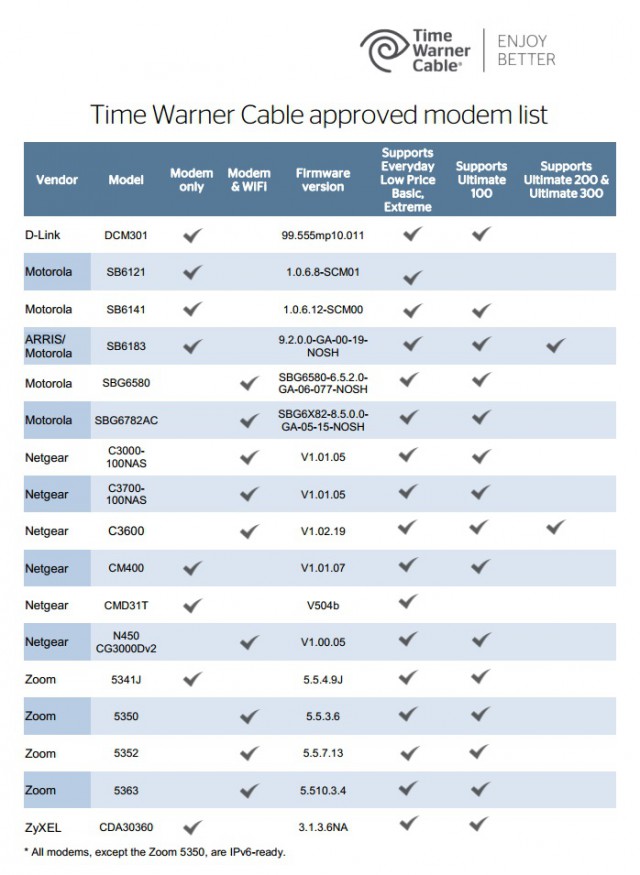


 Subscribe
Subscribe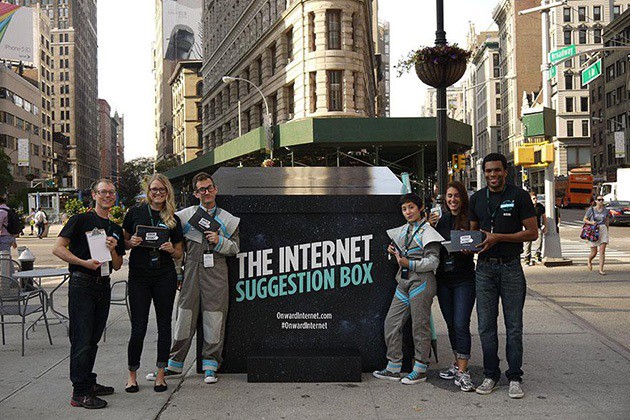 With millions at stake charging content producers extra for guaranteed fast lanes on the Internet, some lobbyists will go to almost any length to throw up roadblocks in opposition to Net Neutrality.
With millions at stake charging content producers extra for guaranteed fast lanes on the Internet, some lobbyists will go to almost any length to throw up roadblocks in opposition to Net Neutrality.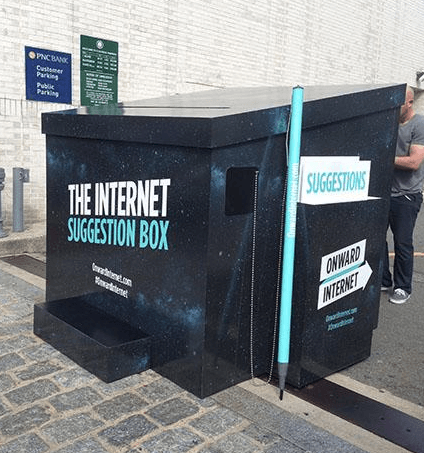


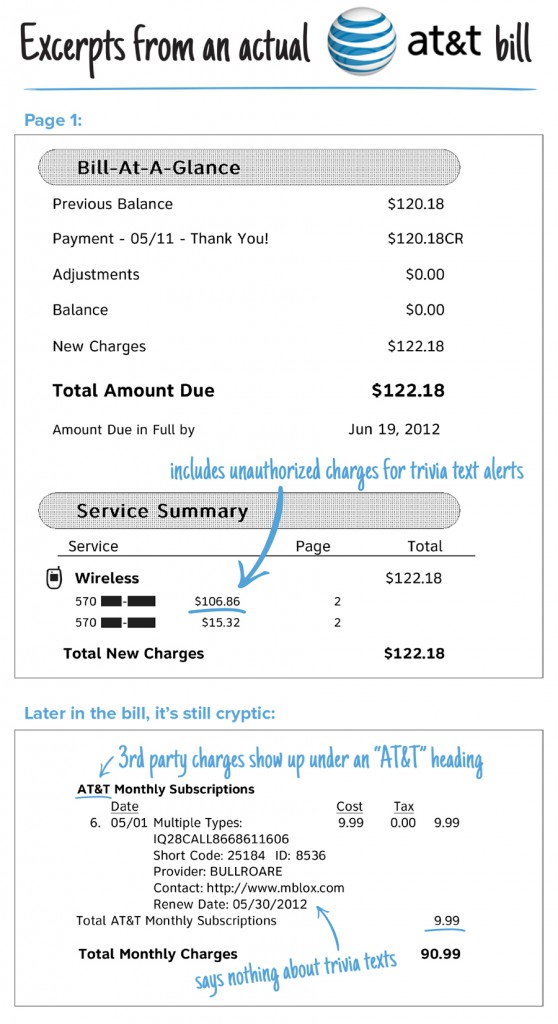

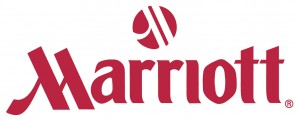 “Marriott has a strong interest in ensuring that when our guests use our Wi-Fi service, they will be protected from rogue wireless hot spots that can cause degraded service, insidious cyber-attacks and identity theft,” Marriott said in a statement. “Like many other institutions and companies in a wide variety of industries, including hospitals and universities, the Gaylord Opryland protected its Wi-Fi network by using FCC-authorized equipment provided by well-known, reputable manufacturers. We believe that the Opryland’s actions were lawful. We will continue to encourage the FCC to pursue a rule making in order to eliminate the ongoing confusion resulting from today’s action and to assess the merits of its underlying policy.”
“Marriott has a strong interest in ensuring that when our guests use our Wi-Fi service, they will be protected from rogue wireless hot spots that can cause degraded service, insidious cyber-attacks and identity theft,” Marriott said in a statement. “Like many other institutions and companies in a wide variety of industries, including hospitals and universities, the Gaylord Opryland protected its Wi-Fi network by using FCC-authorized equipment provided by well-known, reputable manufacturers. We believe that the Opryland’s actions were lawful. We will continue to encourage the FCC to pursue a rule making in order to eliminate the ongoing confusion resulting from today’s action and to assess the merits of its underlying policy.”